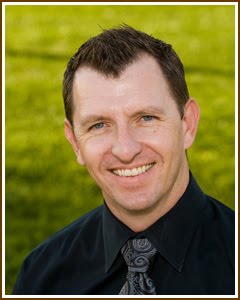I see more and more patients with stress and anxiety, especially in this economic environment. Many patients present with a myriad of symptoms that usually do not correlate to one specific illness other than "stress induced anxiety" or in doctor speak, "acute stress reaction NOS." The most difficult part for myself is that I see all patients with anxiety individually and while the patient is rightly concerned, their complaints are so strikingly similar to other patients with anxiety, that at times I think, "Is it Groundhog Day?" The fear, concern and pain that they feel is real but they don't realize that it's manifested by months if not years of stress. In my practice, I have the luxury to spend at least 30 minutes with each patient to really understand their concerns, the type of treatment that they would like and the barriers that will prohibit them from initiating treatment. That being said, I still think this disease is under diagnosed and under treated. That does not mean that every patient with anxiety needs medication. I try my best to treat the patient on terms that are acceptable to them. I have found that imposing a treatment regime on any patient for any illness leads to less successful treatment courses and greater follow-up.
What can you do to treat your anxiety?
First and foremost, how is your sleep? If you can't get to sleep, thoughts racing, noises bother you, room isn't dark and cool, watching TV, waking many times through the night, or waking up early without an alarm, these are all signs that your sleep is poor. We build our day on a foundation of sleep. A good nights sleep is the only way you will have the best chance of having a good day and dealing with stress and anxiety in a more purposeful way.
Next, you have to exercise and I don't mean to lose weight. I'm talking like 15-20 minutes everyday with your heart rate over 100. This will naturally increase your serotonin levels (same as anti-depressants) which will improve your mood and your ability to handle the stress of the day. In turn, this will help you sleep better which will in turn help you handle your stress the next day. Do you get my drift?
Lastly, work on prioritization, time management and perception in your world. What do I mean by that? I mean, we all have things that must get done, need to get done and we want to get done, but you can't do that everyday. We as Americans spread ourselves so thin that we never let our bodies rest and recharge. Do you know that Americans take less vacation annually than any other country in the world and have a higher rate of heart attacks and obesity. Why do you think that is? 100 years ago if you got sick, yes you could have died from infection or trauma, but the vast majority of illnesses resolved on their own. This is the bodies ability to heal itself. There was no such things as minute clinics or urgent care. The reason why more and more patients are presenting to doctors, urgent cares, hospitals etc it multi factorial but you have to admit that when the doctor recommends rest and time off work, nobody listens. So, with this in mind, prioritize you day within reason and manage your time better, not to be more efficient or to make more money but FOR YOUR HEALTH! Think about this, when you watch your favorite sports team playing a game and they win, you're happy, and win they lose, you're sad. How is that possible? Those feelings are self imposed. You have placed that perception on yourself that since your team lost, your in a bad mood. Is it possible that you imposed undue stress on yourself at home or at work or in relationships? I think we all do it, myself included. It's not very hard to see that stress begets stress and fatigue begets fatigue. What can't optimism beget optimism and energy beget energy?
In conclusion, we all have stress and anxiety. The question is how do you deal with it and how does it end up dealing with you? If you have had longstanding anxiety, you may appropriately need medications for several months to reverse the chemical nature your brain. There are things you can do for yourself without medication like getting better sleep, exercise and adjusting the way to react to your world.
In this economic climate, when you need to be your best to keep your job and your house, you can't afford to run yourself down. Make time for yourself and HEAL THY SELF.
Just some thoughts from the other side of the exam table.
Bryan Glick, DO
www.thehealthquest.com
Dr. Bryan Glick of Health Quest Family Medicine believes that health care should be about giving the patient the best experience possible, not suiting it to the doctor's schedule or mandates of the insurance companies. We accept non-insured and insured patients. As a non contracted physician we eliminate the barriers between patients and the care they need.
My Blog List
Followers
Blog Archive
About Me

- Bryan Glick, D.O.,M.B.S.
- Anthem, Arizona, United States
- Dr. Glick graduated from the Arizona College of Osteopathic Medicine in Glendale in 2006. He completed a three-year residency program at Banner Good Samaritan in family medicine in Phoenix, with glowing reviews. Dr. Glick was nominated by the Arizona Academy of Family Physicians for the 2008 Walter Brazie Fellowship Award as the outstanding second-year family medicine resident in Arizona. He also has a master's degree in biomedical sciences.